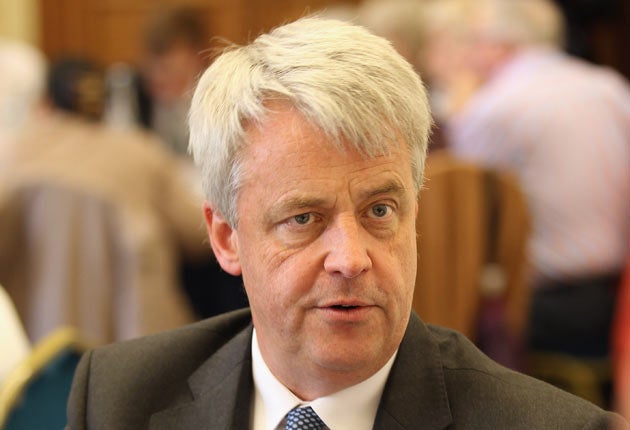Hospitals furious at Lansley's debt claim
Health Secretary 'undermining stability' for political ends

Hospitals across the country turned on the Health Secretary Andrew Lansley last night, accusing him of making misleading claims that parts of the NHS were "on the brink of financial collapse" for party political gain.
Senior NHS managers expressed anger that Mr Lansley had singled out 22 trusts, whose "clinical and financial stability" was being undermined by having to pay for prohibitively expensive private finance contracts – used to build their new hospitals.
Mr Lansley claimed the trusts had contacted him saying that they "cannot afford" to pay for their schemes which were agreed by the previous Labour government.
But when contacted by The Independent a number of NHS trusts on the list expressed bemusement and anger that they had been included, and said the first they knew of the supposed financial difficulties over PFI (private finance initiatives) was when they read about Mr Lansley's comments.
Privately some accused the Health Secretary of attempting to blame PFI for the wider problem of cuts to hospital budgets, which will require the NHS to save £20bn over the next four years. They also expressed concern that Mr Lansley was unnecessarily worrying patients that their local hospital was in danger of going bankrupt. "To suggest that our financial problems are about PFI is nonsense," said one trust executive. "And we certainly never contacted the Department to say that. The problems that we face are about having to cut our budgets by 4 per cent every year for the next four years."
Shahana Khan, executive director of finance at Walsall Healthcare NHS Trust, which was on the list, expressed surprise that they had been included as they had recently been given a clean bill of health by the Department.
Chris Tidman, finance director of Worcestershire Acute Hospitals NHS Trust, added: "There have been longstanding financial challenges for the Worcestershire health economy that pre-date the opening of PFI. In the absence of the PFI initiative, it is unclear how the NHS would have achieved its aim of modernising its acute hospitals."
University Hospitals Coventry and the Oxford Radcliffe also confirmed that they had not contacted Mr Lansley expressing concerns about PFI.
PFI was introduced by the Conservative government in 1992 as a way of enabling private investors to take on the financing, construction and operation of infrastructure projects. The Department of Health estimates there are £12.6bn of PFI contracts in the NHS.
Senior health economists and the body which represents NHS managers also cast doubt on Mr Lansley's claims. John Appleby, the chief economist for the respected health think-tank, the King's Fund, said he was not persuaded by Lansley's PFI argument. He added: "If PFI is seen to be the key problem, it doesn't augur that well for the future when... the plan is under the new Government's reforms [that] the NHS will be doing deals with the private sector... not just to build hospitals but to supply healthcare services, a much more complicated system and a much more complicated exercise."
The Department of Health commented: "The list of 22 trusts is based on returns from NHS trusts to the Department of Health setting out the main issues that needed to be addressed for organisations to achieve financial stability. Concern about the PFI issues facing these trusts is not an attack upon the hospitals, but a recognition, based on what they themselves told us, that a review of their case should be done."
NHS database axe confirmed
The Government is to dismantle most of its controversial £12.7bn national IT programme for the NHS after a review found it had failed to deliver value for money. The move, first revealed by The Independent in August, will involve ditching the "top-down approach" enshrined in the national programme, and moving towards local IT solutions.
The scheme's successes, which account for about two-thirds of the £6.4bn spent on the programme so far and include the "choose and book" system, will be kept.
Subscribe to Independent Premium to bookmark this article
Want to bookmark your favourite articles and stories to read or reference later? Start your Independent Premium subscription today.

Join our commenting forum
Join thought-provoking conversations, follow other Independent readers and see their replies